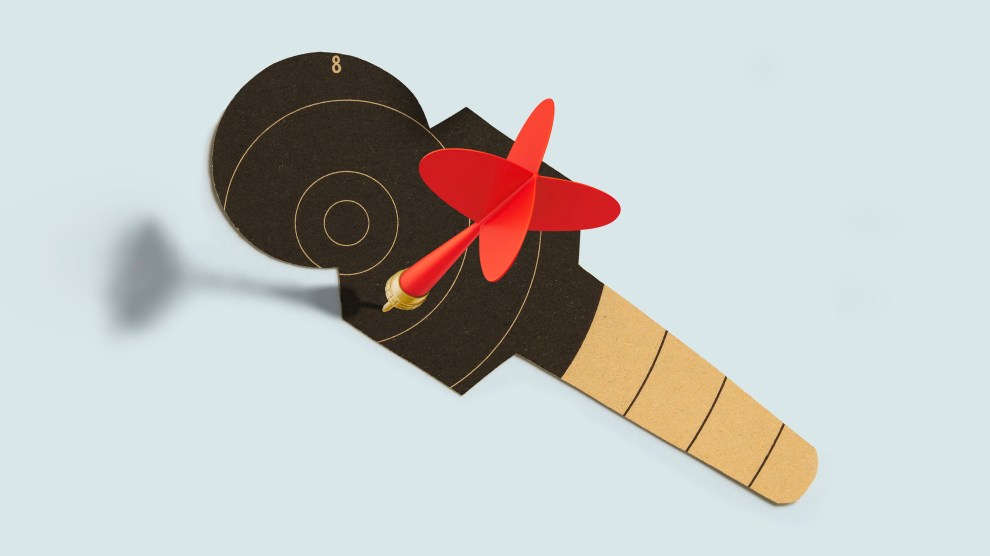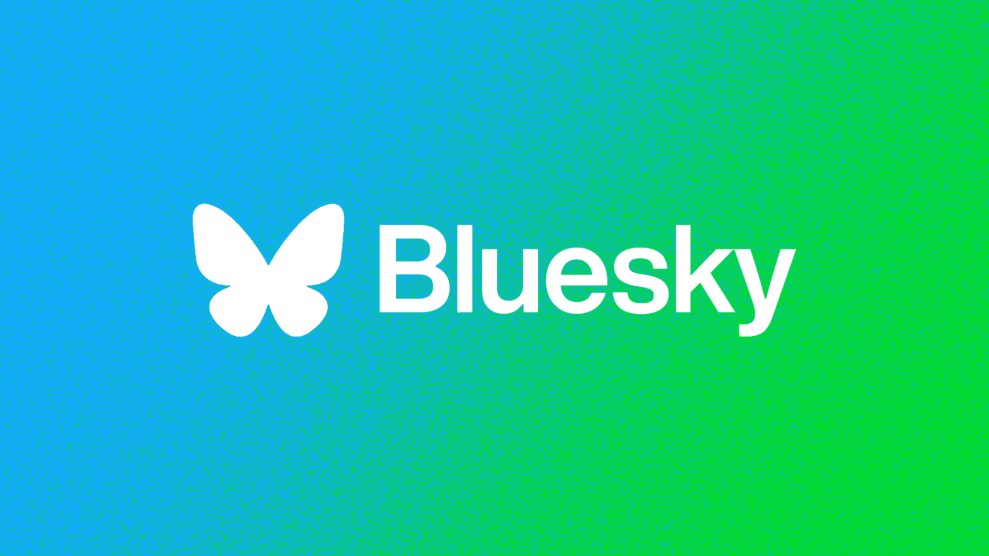I started Quietly Hostile, Samantha Irby’s newest collection of essays, last week as the government declared the pandemic effectively over, and two bright lines appeared on a rapid test. After more than three years, I had finally caught Covid. My toddler, as if competing, came home days later with a revolting case of hand, foot, and mouth disease. Spring had come; we were stuck indoors. The house was under siege.
It was against these cascading calamities that I read “The Last Normal Day,” the book’s second essay, which memorializes the harried moments before lockdown in March 2020. Here we find Irby fleeing Chicago, where she had been working on the since-canceled television series, “Work in Progress,” in order to race home to Michigan. “IF YOU SO MUCH AS LOOK AT AN UBER YOU WILL DIE,” she writes, satirizing the panicked headlines from that time: “PEOPLE ARE DYING AND WE’RE GONNA LET THEM.” The essay ends with Irby completing a high-wire trip to a gas station—she enters hands in the air, as if about to get arrested—to buy a corn dog. Even in my chamber of isolation, it was a pleasure to see her recount, in ways chilling and uproariously funny, how these mundane acts had suddenly warped into perilous tasks.
To read Irby, once described as the “great bard of our quarantine,” by the New York Times, is to discover a secret chronicler of our private humiliations and small joys. As she proves once again in Quietly Hostile, she has the rare talent of describing in one moment the quotidian satisfaction of taking a good shit, and in the very next beat, ferociously deriding the immoral conditions this country forces on people in need. No line is overwrought; each unflinching thought unravels like a gift in your favorite group chat.
I talked to Irby about her new work, the ongoing writer’s strike, mourning the internet of the 2010s, and, overcoming my rejection-tinted animosity for DMB.
Reading “The Last Normal Day” has had me in a particular mindfuck. What was it like recalling those early March 2020 days?
It’s hard to have anything—at least with my lack of education—to say about COVID in the broad sense. So, I was like, “How can I write about this thing that broke my brain?” I was one of those people where my brain had just melted and I had to start seeing a psychiatrist. I think my specific lens is the panic we all had, the panic of the unknown. Honestly, that was the cruelest part, right? No one could tell us what to do. We didn’t know who was right. Turns out lots of people were wrong, and that’s okay. We’re all figuring it out together. But on a person-to-person level, deciding what to do was so scary. I wanted to get that out. Because who even knows what’s gonna happen in the future? At least I can look back at that and be like, “Okay, well, this last time, we were washing our hands a lot and bleaching our groceries.”
Totally. Reading those memories hit me on an emotional level. I never screamed at anyone on the grocery line, but in my brain, I was definitely telling the lady standing too close to “fuck off.”
Me too! First, I was like, “Well, I was made for quarantine. I hate leaving the house. I surround myself with things to distract me from the outside world. I got this.” And then like a year into it: I’m now terrified of everyone in the outside world.
We were all left to figure it out on our own. Maybe other people will tell me their early quarantine stories after reading mine because I truly am so fascinated with how we got through it every day.
Speaking of the minutia, a lot of what you write is about the quotidian. Can you describe your process for deciding what everyday observations, the little absurdities, make it into your writing?
I wish there was a formula! It would make putting these stupid books together much easier. But I tend to have two categories of this stuff. There’s this thing that happened—this is a neat, tidy story of an experience. But a lot more things are, “Oh, that irritates me. I gotta put some words on paper about it.” It’s the sense of “Oh, that irritates me” when I usually can tell a little petty thing that makes me mad is just a thing to text to my friends versus a thing I can turn into 2000 to 5000 words.
My writing process is that if I have an idea, I have to have an ending. I have this essay sitting in my drafts. It’s been there since two books ago, and I can’t figure out how to land the plane. So, I haven’t written the piece. I have to write to an ending. If I’m thinking about a thing, and it’s nagging at me, and I’m thinking of all these jokes to say but I can’t decide where it goes, it goes in the garbage.
That’s great advice.
Landing the plane is hard, right? I found that if I’m wandering around a document, I will just keep adding to it. But if you’re gonna end on a joke about potatoes then, I know, I gotta get to the potato.
Another thing I love about your writing is how precisely you’re able to recall big adolescent emotions. There was a line in Quietly Hostile, something about shutting your school locker and immediately hearing a Smashing Pumpkins song. I appreciated that so much. How does nostalgia inform your work?
I can so easily access 15-year-old feelings. It is so alive to me. The things I was seeing, feeling, thinking. They’re just below the surface. Now, these certainly weren’t glory days. But maybe some part of my development stopped at 16 and so I am still locked in? I couldn’t tell you what I was thinking or feeling last week. But I can absolutely, in a second, bring up the feeling of how I lost my virginity to this dude. The next day—it was my freshman year of high school—he was standing by my locker. And I thought, “Oh no, this is how everyone knows that we did it.” So I told John, “You can never talk to me again”—and I never did.
I am super nostalgic. Those years of my life have a summer glow in my mind. All of that is very available for me to use. Sometimes I wonder: I’m 43 years old. How long can I reasonably get away with mentioning high school things? But no one’s told me not to.
You write a lot about chronic illness and the messy corners of life. How do you manage to shine a humorous yet humane light through all of it?
As a person dealing with it, I feel like it is a benefit to me and everyone to just keep talking about this because I am forced to remind people all the time of the limitations of what I can and can’t do, where I can and can’t go. I write about it with compassion for myself and for other people.
So few things are accessible to everyone. To not have your needs met in public places but also in your friends’ houses. I have to keep beating the drum. It helps me to continue to advocate for myself because advocating for yourself is fucking hard, especially in a world that is hostile to people that need stuff. The compassion and humanity are me recognizing my own, and me wanting it for everyone who needs it
You’re back writing for the second season of “And Just Like That…” I wanted to get your thoughts on the writer’s strike.
Fully in support as a member of The Guild.
I haven’t been doing this work long enough to have been hosed by it. One of the reasons [writing for TV] is not one of my main jobs is because it’s so unpredictable. I haven’t weathered the storm [like others.] But I did get a $42 residual check the other day and I think about young kids who are funny and smart, and they get a writing job, and they think, “Wait, this is it?” And they try to live off that? If that’s all you can squeeze out for a person who wrote your show, OK. But that’s not true! I know everyone’s talking about the CEO salaries and it’s a little bit of a slap in the face when they say they don’t have the money. It’d be one thing if they said, “Listen, everybody cut back. We can’t make any shows. No one is watching TV.” But when they’re spending money on everything else but the people who are making this thing and we need them? Just give us the money.
It bums me out but I’m not even that affected. There are people that the longer this goes on might not be able to pay rent. It sucks. Solidarity.
Artificial intelligence. What are your thoughts? Is this what hell looks like?
I’m not a Luddite, but I’m as close as you can be while also having an iPhone. It terrifies me!
I was talking to a friend the other day who has cancer and they told me, “I put my diagnoses into ChatGPT to have it explained to me. And I said, “You gotta get the fuck out of here! Sure, if it takes writing jobs, what are we going to do? But we can’t have it take doctor jobs! Call your oncologist, please!”
In the essay “Superfan” you speak to how horrendous the internet has gotten. I’ve been thinking a lot about that, especially with the end of a certain kind of internet, the end of BuzzfeedNews, and Twitter.
I don’t know enough about the way the internet has changed to speak definitively. But the career I have is not possible now, right? I had a blog, and I then linked that on Facebook and built an audience. I don’t know how someone would do that now and that makes me sad. I didn’t go to any fancy schools, I didn’t have any friends. It was luck and continuing to write for free and luckily finding my agent that started my career. How would someone do that now? How do you get a start without a leg up? That bums me out.
The thing about the internet that’s tough for me is that it doesn’t feel like nice communities are possible.
And it used to be possible, right?
Yeah! It was before Facebook was all bots and you could consider people friends just because your comments are funny and you have good banter. I mourn that internet.
Okay, final question. I had an intense high school crush on a Dave Matthews super fan. But it was very much unrequited. And even now, 20 years later, I associate Dave Matthews with that rejection. So, I hate them. But your essay listing DMB’s most romantic songs made me want to finally shed my animosity. How do I get there?
Dave Matthews and Tim Reynolds, “Live at Luther College.” I’ll pick two things from that record, although really, any two will do. “Jimi Thing.” This version is so great because it’s an upbeat song, he’s singing and doing his thing, an intimate set. But then “Jimi Thing” goes the full range of Dave: loud and then at the end, this whole slowed-down falsetto section. It’s so beautiful. Then on the same album, “Little Thing.”
This conversation has been edited for length and clarity.

















